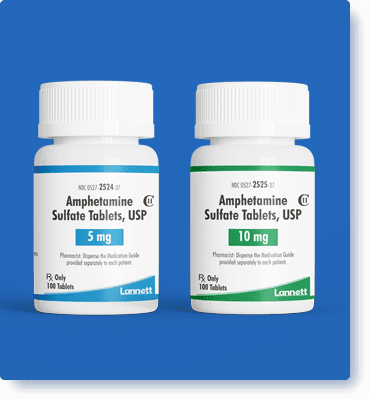What is Amphetamine Sulfate?
Amphetamine Sulfate is a central nervous system stimulant that affects chemicals in the brain and nerves that contribute to hyperactivity and impulse control.
Amphetamine is used to treat attention deficit hyperactivity disorder (ADHD).
amphetamine sulfate brand name
You should not use amphetamine if you are allergic to any stimulant medicine, or if you have used an MAO inhibitor in the past 14 days, such as isocarboxazid, linezolid, methylene blue injection, phenelzine, or tranylcypromine.
amphetamine dosage
You may not be able to use amphetamine if you have:
- chest pain or breathing problems caused by heart disease.
- hardening of the arteries.
- moderate to severe high blood pressure.
- overactive thyroid.
- a history of drug abuse; or
- if you are agitated.
-
Is amphetamine sulfate the same as amphetamine salts?
Take amphetamine exactly as prescribed by your doctor. Follow all directions on your prescription label and read all medication guides or instruction sheets. Your doctor may occasionally change your dose.
- Amphetamine may be habit-forming. Misuse can cause addiction, overdose, or death. Keep the medicine where others cannot get to it. Selling or giving away this medicine is against the law.
Is amphetamine sulfate Adderall?
Shake the oral suspension (liquid). Measure a dose with the supplied syringe or a dose-measuring device (not a kitchen spoon).
Allow the orally disintegrating tablet to dissolve in your mouth without chewing.
Your dose needs may change if you switch to a different brand, strength, or form of this medicine. Avoid medication errors by using only the medicine your doctor prescribes.
-
Amphetamine side effects
Get emergency medical help if you have signs of an allergic reaction to amphetamine: hives; difficult breathing; swelling of your face, lips, tongue, or throat.
amphetamine tablets
- signs of heart problems – chest pain, trouble breathing, feeling like you might pass out.
- signs of psychosis – hallucinations (seeing or hearing things that are not real), new behavior problems, aggression, hostility, paranoia.
- signs of circulation problems – numbness, pain, cold feeling, unexplained wounds, or skin color changes (pale, red, or blue appearance) in your fingers or toes.
- a seizure (convulsions);
- muscle twitches (tics).
- pain or burning when you urinate; or
- changes in your vision.

Reviews
Clear filtersThere are no reviews yet.